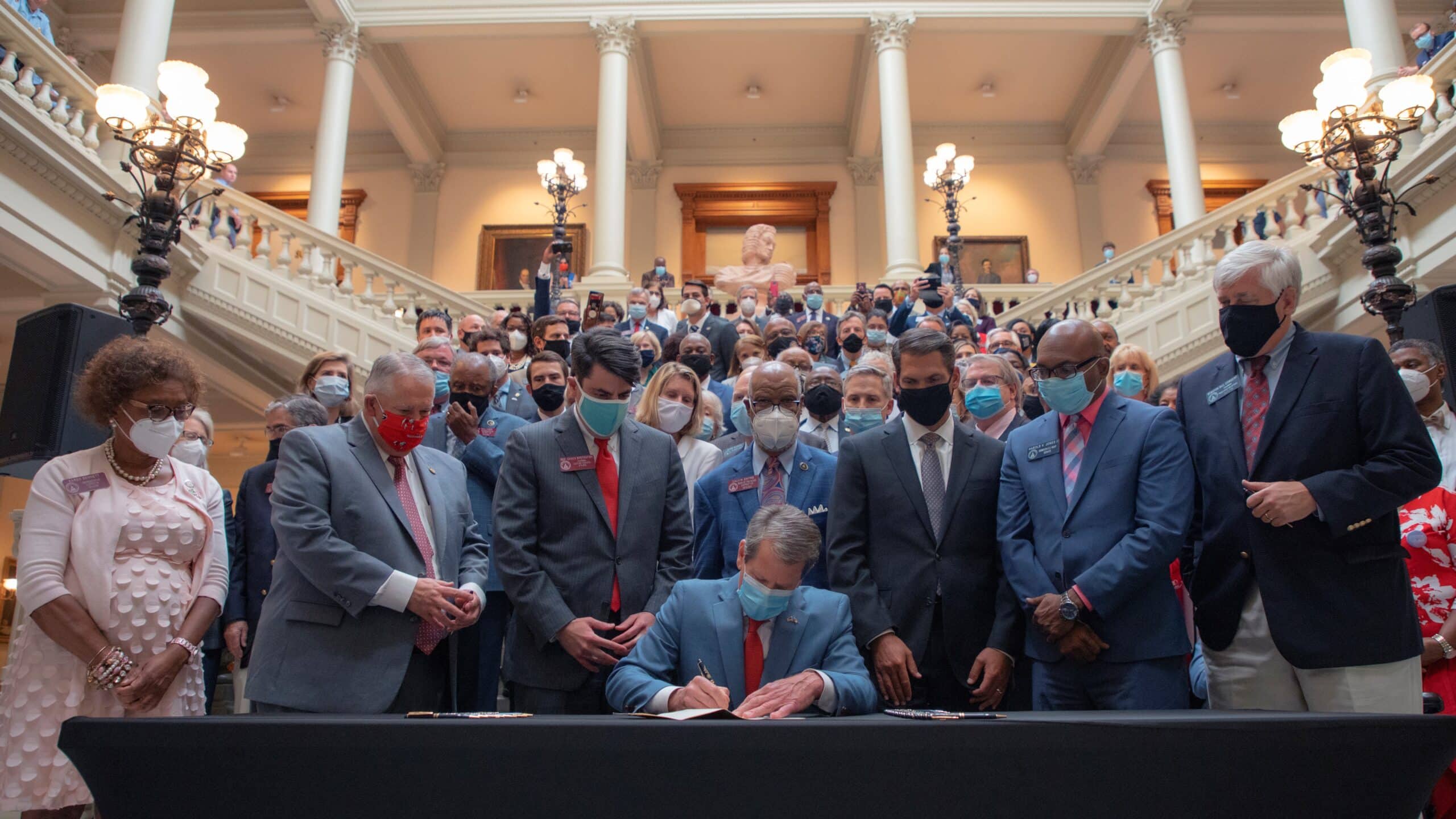After lawmakers reconvened from the pandemic-interrupted session, the 2020 Legislative Session concluded on Friday, June 26 as lawmakers maximized the remaining 11 days prioritizing legislation to pass and send to the Governor’s desk. Highlighted below are some key takeaways.
$25.9 Billion Fiscal 2021 State Budget
Lawmakers had the pressing task of passing an adjusted budget after the pandemic brought revenue losses across all departments. Originally projected to cut 14% across the board, the general assembly was able to reduce the cuts to 10% and avoid furloughs thanks to Governor Kemp’s decision to tap into the state’s reserve funds. Furthermore, lawmakers voted to pass 10% cuts to salaries of legislators and a 14% cut for the Lt. Governor.
Historic Hate Crimes Legislation Signed into Law
After stalling in the Senate for over a year, recent events of racial injustice spurred renewed call-to-action on the passage of a comprehensive hate crimes law. The Senate passed HB 426 by substitute on a widely bipartisan basis after Lt. Governor Geoff Duncan added data reporting measures to the bill. The Governor signed the bill into law on Friday, June 26. Anyone who is convicted of a crime based on race, gender, sex, sexual orientation, national origin, religion, or mental or physical disability will face harsher penalties.
Safe Harbor Legislation Passes
As businesses adjust their operations to keep business open during the COVID-19 pandemic, SB 359 would protect them from frivolous lawsuits if an employee or customer contracts COVID-19 except in the event of “gross negligence, willful and wanton misconduct, reckless infliction of harm, or intentional infliction of harm.” There is a sunset provision, if signed, for July 14, 2021. The House and Senate passed the measure largely along party lines.
Taxes
Among several tax-related bills that were up for debate, HB 1035, which would have cut every Georgia tax credit and exemption by 10 percent, did not pass in the Senate. House Bill 105, which sets a 50 cents per ride tax rate for rideshares, taxis, and limos along with a 25 cents fee for pooled rideshare rides, passed the General Assembly. Lastly, HB 846, which gives tax credits to businesses that make personal protective equipment (PPE), also passed the Senate.
The Governor has 40 days from the end of session to decide which bills he will sign or veto. If he does not veto within 40 days, the bills become law on their effective date, commonly July 1.

